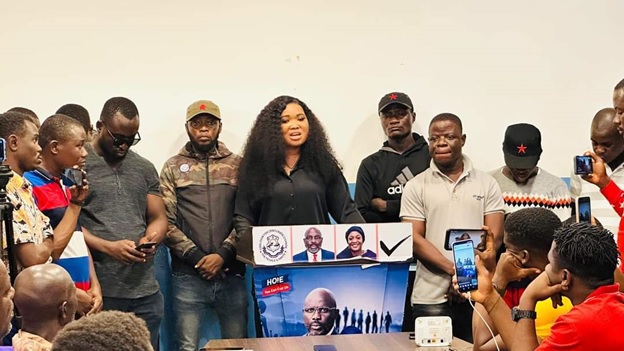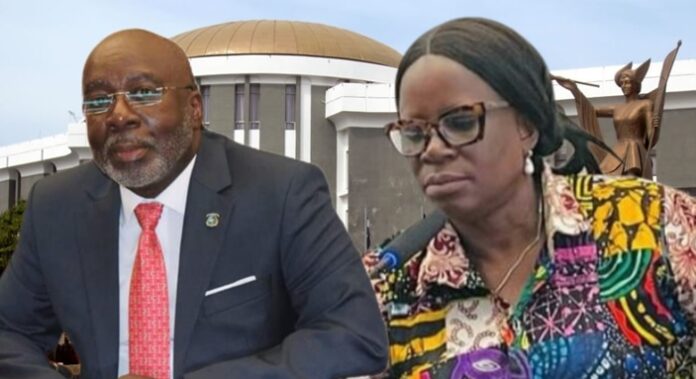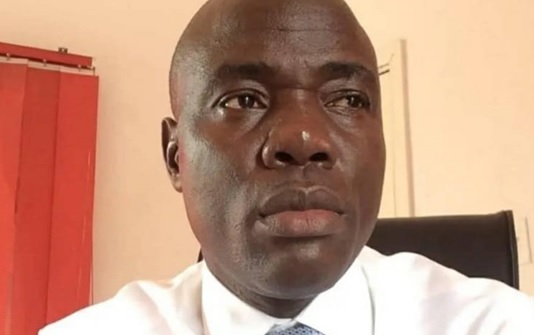MONROVIA – The opposition Congress for Democratic Change (CDC) has leveled accusations against the Liberian government, alleging that the Liberia Broadcasting System (LBS), under the leadership of Eugene Fahngon, has refused to air its promotional jingles. During a press conference held on Tuesday, June 25, 2024, in Monrovia, Mamensie Kabba, the CDC’s Assistant Secretary for Press and Propaganda, voiced her disappointment, claiming that the refusal to broadcast their jingles intended for the upcoming militants-day celebration is both unconstitutional and unruly.
Kabba criticized Director General Eugene Fahngon for blocking the CDC’s access to the state broadcaster, ELBC. Fahngon had previously assured during his Senate confirmation hearing that the state-run radio station would function as a public broadcaster under his watch.
When approached for a comment, Fahngon confirmed his decision to deny the CDC airtime. He explained that the CDC’s jingle promoted militancy, prompting his request for the opposition party to edit the content before it could be aired. The CDC, however, refused to comply with Fahngon’s request. The party has scheduled its militants-day celebrations for June 28-30, 2024, which will include various activities such as Lulu games, checkers, and football matches at its headquarters.
The controversy around the jingles is not the first instance where Fahngon’s actions have sparked debate. During a recent three-day government retreat at the EJS Ministerial Complex in Monrovia, Fahngon proposed that LBS be used exclusively for government-related issues, effectively excluding opposition voices. President Joseph Boakai swiftly rejected this proposal, asserting that LBS should remain a platform accessible to all Liberians. “LBS should be and will be for all Liberians,” Boakai stated, further urging the government’s communication arm to ensure that each county capital has a television station accessible to ordinary citizens.
Political commentators have expressed relief over Boakai’s stance, voicing concerns that Fahngon’s proposal was an attempt to silence critical opposition voices. Fahngon, known for his combative demeanor, previously served as Deputy Minister for Press and Public Affairs at the Ministry of Information under the former ruling Coalition for Democratic Change (CDC). His tenure at Information was marked by threats against journalists and strained relations with media institutions. After resigning from the CDC due to policy differences, Fahngon became a critic of the Weah-Taylor administration during the 2023 presidential election. His appointment as Director General of LBS was seen as a reward for his loyalty and support for Boakai during the election.
Currently, Fahngon is involved in a public dispute with the former LBS leadership, led by Estella Liberty Kemoh. This ongoing conflict adds another layer to the controversies surrounding his tenure at LBS.
The CDC’s allegations against Fahngon highlight ongoing tensions between the government and opposition parties regarding media access and freedom of expression. As Liberia continues to navigate its political landscape, the role of state media and the importance of maintaining an open platform for all voices remain critical issues for the country’s democratic development.







